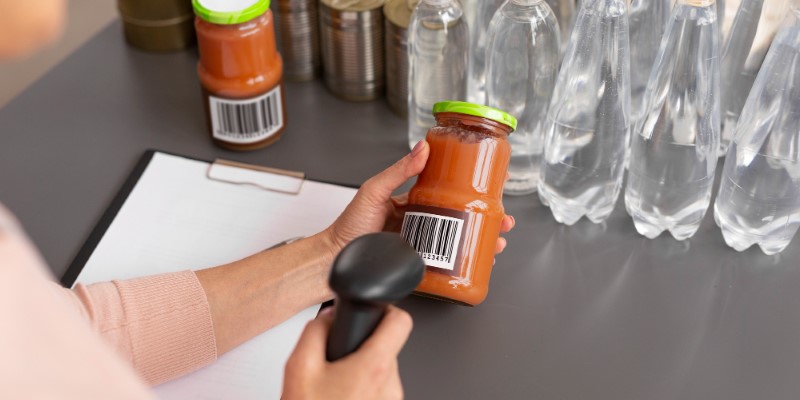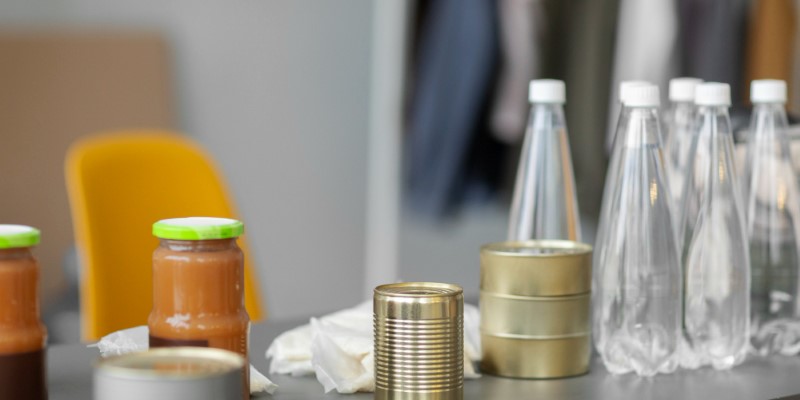Counterfeit Products: The Risks You Need to Know
Mar 09, 2024 By Nancy Miller
In an era where purchasing goods from street vendors or online has become normal, it's critical to be aware of the risks. Although counterfeit products could appear like a good deal at first, there are a number of risks involved that can outweigh any initial savings. The risks of purchasing fake products are significant and should not be ignored, as they can lead to both legal issues and health dangers.
If you are interested in learning more about counterfeit products and ways to protect yourself from buying such fake goods, you are at the right place. Let's get started!
What are Counterfeit Products?
Fake copies of authentic items are known as counterfeit products. They are frequently produced using less expensive materials and marketed without authorization under a brand name. Designer clothing and accessories, technology, pharmaceuticals, and even culinary items might be included in this category.
The internet is rapidly being used to market health products, including mainstream medications, health supplements, and traditional remedies. Health items are now easily accessible via various online channels, including blogs, social media, online pharmacies, discussion boards, online auction sites, online classified advertisements, and company-based or e-commerce websites.
It is challenging to verify the credibility of sellers as well as the security and quality of the goods due to the global reach of the internet. Customers buying medications and other health products online are strongly encouraged to use caution and attention because these products may be fake or contain banned substances.
Risks of Counterfeit Products

In addition to posing a hazard to public health and safety, counterfeiting and piracy cost the economy. Every product in every business is vulnerable, from car parts, prescription medications, and electrical equipment to DVDs, CDs, shampoo, and batteries.
Health Hazards
The possible health concerns associated with counterfeit goods are among their most serious threats. For example, consumers may be seriously at risk of health problems if they use counterfeit pharmaceuticals since they may include inappropriate components or dosages. Likewise, fake skincare and makeup products could have dangerous ingredients that result in allergic responses or even long-term skin damage.
The contents of counterfeit goods are frequently unknown and possibly dangerous, including poisonous materials like lead, mercury, and arsenic. Usually, they are made in filthy, uncontrolled environments without regard for safety regulations. Because they don't undergo the required safety testing or contain substances that aren't mentioned, they can result in serious allergic responses and skin issues.
Poor Quality
Bad quality is a well-known characteristic of counterfeit products. In order to increase earnings, producers of fake goods take shortcuts, producing inferior goods in terms of performance, safety, and durability. For example, poor quality control and cheap parts can cause counterfeit electronics to malfunction or even present a fire risk.
Fake products undermine consumer confidence in companies and brands. Consumers may lose faith in a brand's authenticity and feel disillusioned when they unintentionally buy counterfeit products that fall short of their expectations. For organizations, this lack of trust can have significant consequences, including harm to their reputation and the loss of loyal customers.
Legal Consequences
Trading in fake goods carries potentially dangerous legal liabilities. Selling or distributing fake goods is illegal in many nations and is punished with penalties such as fines, prison time, or both. Furthermore, people who purchase counterfeit goods have the risk of unintentionally breaking the law and being charged with possessing unlawful goods.
How to Avoid Fake or Counterfeit Products?

The Chartered Trading Standards Institute advises consumers to always keep in mind the 4 Ps before making a purchase from an unapproved merchant or website.
Place: Make sure you purchase from a reliable duty-free store, including online retailers and marketplaces.
Price: An offer is most likely too good to be true if it appears too wonderful to be true.
Packaging: Watch for improper labeling, which may include misspellings and improper grammar.
Product: Watch out for knockoffs of popular brands, and be cautious of unique brand names you haven't seen before.
Buy from Reputable Retailers
Frequently, companies provide lists of approved shops on their websites or in their packaging. Ask the shop for reliable information regarding the origin of the items if you are unsure if they purchased them from an authorized seller. Learn about the suppliers used by retail establishments, and encourage the stores you like to protect their supply chain.
Sales Taxes
Keep an eye out for any unpaid sales taxes. Companies that deal in counterfeit goods frequently fail to disclose their sales to financial authorities, which could have an impact on the final cost you pay, especially in states where sales taxes are collected. Before making a purchase, you should find out more about the cost and origin of the company's items if the purchase price does not seem to include the applicable sales tax or other costs.
Seek Quality Assurance
The resellers may have discounted or used goods that you would like to buy. It might be difficult to distinguish between acceptable packages and content errors and counterfeits. Asking your supplier for information about their quality assurance procedures will help you stay away from counterfeits in the secondary market.
Reputable and trustworthy resellers use technicians to verify the equipment they sell, as well as thorough examination and authentication processes.
Report Suspicious Activity
Notify the appropriate authorities or brand owners if you come across fake products or suspect counterfeit activities. Notify the brand owner and the authorities if you get spam that points you towards a dubious website. Notify the company's owner and get in touch with the retailer for a refund or exchange if you think you may have bought a fake or pirated item. By your actions, you can prevent others from becoming victims of fraudulent schemes.
Conclusion
Counterfeit products have serious and significant risks. Fake products are a major threat to consumers, businesses, and society at large, with health problems, poor quality, legal consequences, and loss of confidence, among many other hazards. The proliferation of counterfeit goods can be prevented by protecting ourselves and others from harm by making the decision to only purchase from authorized sellers and using precaution when determining the authenticity of the products we buy.







